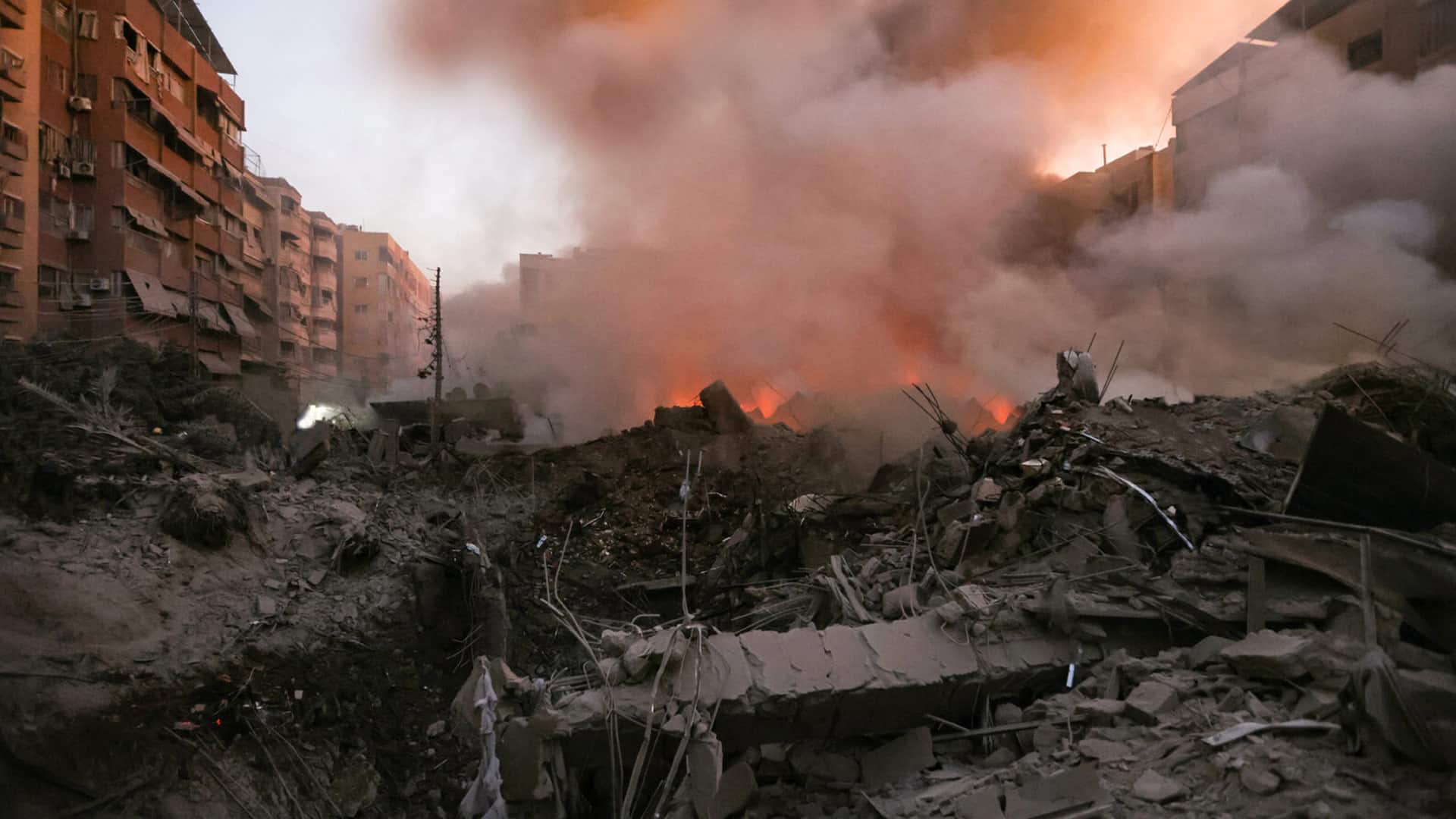Israel’s massive military escalation against Lebanon threatens to supercharge our steady descent into dissolution – one that the Lebanese state may not survive.
In dropping thousands of bombs on city high-rises and rural townhouses alike since mid-September, the Israel air force has driven more than a million Lebanese from their homes and caused hundreds of millions of dollars in damage. The Israeli army then announced the beginning of the ground war this week, saying it was sending combat troops across the border.
This would be an existential crisis in any country, but Lebanon was already halfway into the abyss. Lebanon’s public institutions and the economy at large were in zombie mode after four years of financial collapse, a withered currency, soaring inflation and skyrocketing poverty, an unending commercial banking crisis and a crippled central bank, the catastrophic Beirut port explosion, political paralysis that has left the country without a president since 2022, and a persisting Syrian refugee crisis tearing at social cohesion.
In October 2023, when the southern border became an active war zone between Hezbollah and the Israeli army, the litany of crises grew to include 100,000 people displaced and a complete economic collapse in parts of the south. The intensity of Israel’s ongoing military escalation, however, is monumental in scale, with no clear end in sight.
While the overall arch of the conflict is largely outside Lebanese policymakers’ hands, there are key steps they can take to create safeguards and prepare the country to respond to evolving scenarios. The political class must find a way to step up to this public duty and surmount the belligerent self-interest and ineptitude that has for so long characterised their leadership.
Among the steps Lebanese policymakers should take to navigate this moment are:
1. Convene the Council of Ministers and Declare a State of Emergency
Lebanon’s Council of Ministers to declare a state of emergency and signal their commitment to fully implement United Nations Security Council Resolution 1701. Prime Minister Najib Mikati has reportedly been in indirect talks with Hezbollah, and there are indications that Hezbollah leaders have tacitly accepted a settlement negotiated by Speaker Nabih Berri with Western diplomats. Now is the moment to formalise Lebanon’s commitment to this ceasefire deal through official channels and leverage the international community’s support for de-escalation.
2. Elect a President to End the Political Stalemate
In pivotal times of crisis, a country needs a head of state to reassure the population and lead responsive policymaking. Lebanon’s parliament must meet without delay to elect a new president. This would end the debilitating constitutional vacuum and help restore legitimacy to the state’s institutions. A functioning presidency and the formation of an emergency cabinet consisting of all key political blocs would allow the government to be more responsive to the crisis. Numerous positive knock-on effects would also arise if local and international opinion began to see Lebanese government dysfunction as transitory rather than endemic.
3. Deploy the Lebanese Army Nationwide
The Lebanese Armed Forces (LAF) should immediately call up reserves to assist in undertaking three priorities: (1) prepare sufficient troops and equipment for quick deployment to South Lebanon to implement UNSC Resolution 1701, if and when such becomes possible; (2) deploy soldiers to key urban areas and flashpoints and to help reassure a shaken public and preclude the possibility of social unrest; (3) coordinate with other security forces and aid organisations to assist in relief operation logistics for displaced populations. This would include such things as constructing emergency shelters and transporting essential relief supplies to distribution points.
4. Facilitate Emergency Relief
The Lebanese government has been coordinating with UN agencies in relief scenario planning and recently launch a flash donor appeal with the UN. These efforts are laudable and the government’s ongoing coordination with aid organisations should continue and receive further political and bureaucratic support. This potentially includes anything from helping to secure international donor funds for relief organisations, assisting in the overall coordination of relief operations, to facilitating on-the-ground delivery. The focus should be on securing humanitarian assistance for IDPs, providing shelter, medical care, and essential goods to those affected by the conflict.
5. Stabilize the Housing Market
With rental price shock from displacement-driven demand, an emerging housing crisis threatens to stir intercommunal tensions. The interior, social affairs, and economy ministries should launch a coordinated intervention to temporarily enforce regulated rental price caps and prevent evictions and price gouging. Affordable housing is critical to maintaining social stability, especially as internally displaced people (IDPs) flood urban centres. If left unchecked, the housing market could become a flashpoint for violence between communities.
This commentary was originally published in CounterPunch.



